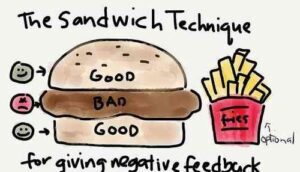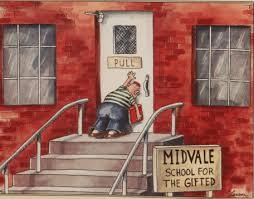Matthew Dicks's Blog, page 37
November 18, 2024
Divider or continuer?
Here’s a quick exercise to understand yourself better:
Try to remember life as you lived it years ago. Back then, you cared deeply about certain things:
Little Debbie Snack Cakes. The Ramones. That girl in algebra class. Your pet raccoon.
Those are some of my deep concerns from the past. You can imagine your own.
You were also oblivious to things that would one day become critical to your existence:
Standing against tyranny. Your ability to hit a 70-yard approach shot. Parenting.
Think back on that early version of yourself. Now ask yourself:
Does that early version of you feel like you, or does it feel like an entirely different person?
If you have the former feelings — that earlier version of you is still very much you — you’re probably a Continuer.
If you have the latter feeling — that earlier version of you is someone very different than yourself — you’re probably a Divider.
A “Divider” believes they change over time and seeks to change themselves as they age.
A “Continuer” believes they remain the same essential person throughout life.
This idea was first proposed by Jonathan Rothman in a 2022 New Yorker piece, “Becoming You.”
I am very much a Continuer. The person I was at ages 8, 15, 22, and 37 feels like exactly the same person I am today. I may be wiser and better informed than I once was, but otherwise, childhood Matt is the same person as adult Matt.
According to Rothman, those who believe you continue to be who you are — regardless of what happens during your life — tend to see their lives as constituting a story.
This makes a lot of sense to me. I very much see the things that happened in Mrs. Shultz’s sixth-grade algebra class as informing the person I am today, and my experiences in that algebra class and the moment I am experiencing now — as I type these words — are deeply connected.
In many ways, I see sixth-grade algebra class as having happened just a few moments ago.
I wonder if people who remember their past as well as I do tend to be Continuers because the past is always so present in our minds.
“Dividers” believe they develop different personality traits from those they had as children. Not only do Dividers believe they are periodically changing, but they often seek to change themselves as they get older.
Dividers tell the story of purchasing new homes or renovating their own — altering the layout and building on additions.
Continuers, by contrast, tell the story of an ancient, venerable property that remains itself regardless of what gets built or changed.
Rothman explains that as different as these two views sound, they have much in common. These categories, among other things, help us in our self-development.
By committing to a life of change, a Divider might constantly be looking for their next pivot or role. They are relentlessly refreshing their life with new and potentially wondrous things.
By concentrating on persistence of character and a lifelong narrative, a Continuer might be nurturing and refining their best self — constantly examining and seeking to understand who they are and then adapting how they interact with the world.
I’m amazed that Dividers even exist. I can’t imagine what it might feel like to look back on the version of you decades ago and see a different person, detached from the one you are now.
It’s probably quite liberating to look back on the stupidities and cruelties of your past and chalk them up to a person different from yourself. Rather than dragging your failures, embarrassments, and shame around on your back, I imagine that Dividers get to put those things down and leave them behind, feeling like a new and better person.
Again, maybe much of this is attributed to memory. It’s easier to leave things behind when you don’t remember them well (or at all), and it’s easier to see yourself as someone different from the person you were two decades ago when that time only exists in your mind as a gauzy haze.
I’m not sure if I would prefer the mindset of a Divider, but it sounds lovely.

November 17, 2024
Dating differently at Stop & Shop
I was explaining to a client that doing something differently is often the best way to do it. While most people try like hell to conform to those around them, those who are daring enough, courageous enough, and wise enough to zig while everyone else is zagging will likely be appreciated, adored, and remembered.
It’s been one of the primary tenets of my life.
If everyone else is doing it, I will try to do it differently.
Or I’ll do something else entirely.
The story I offered my client — amongst the hundreds of stories I could have told — was this:
When I was 22 years old, I went on a first date with a woman named Christine, who I had thought was definitely out of my league. Nevertheless, I asked her out, and to my surprise, she said yes.
Given her beauty, sense of humor, and intelligence, I suspected that she had been on many dates, so I decided that my date would need to be different.
None of the usual trappings of a traditional first date.
So I brought her to Stop & Shop, and we proceeded to go shopping. I wasn’t really shopping for groceries — I was living in the pantry with a goat at the time and did not need to purchase groceries — but I knew three things:
No one had ever taken this woman to Stop & Shop on a date beforeThe aisles of a grocery store are lined with thousands of items, and many would prompt me to crack jokes, tell funny stories, and ask her lots of questions about herself.Good or bad, this date would be unforgettable.Christine and I spent two hours going up and down the aisles at Stop & Shop, loading a cart with an array of random items. We talked. I told funny stories about bologna, elbow macaroni, and Little Debbie snack cakes. I brought the characters in the cereal aisle to life. We scraped the frost off the sides of open freezers and had a tiny snowball fight. We turned the advertising slogan “Leggo my Eggo” into a sexual reference.
When we finished our trip up and down every aisle of the store, I removed and purchased two things from the cart:
A can of vanilla frosting and a bottles of Coke.
Then we went into the parking lot, climbed onto the hood of my car, and ate the frosting from the can with a spoon I had brought for just that occasion and shared the soda.
Later, we kissed for the first time on the hood of my car under the yellow sodium-vapor lights of the parking lot.
Christine later told me it was the best date of her life. She worried that no date would ever compare.
It was a date I will never forget.
Thirty years later, I suspect that Christine remembers it, too.
Christine and I dated for a few months before breaking up. The craziness of my life at the time — sharing a pantry with a goat in the pantry of a family of Jehovah’s Witnesses, working 16 hours a day at a bank and a McDonald’s to save enough money to pay a lawyer for my upcoming trial, and a violent robbery that left me with a lifetime of PTSD — was too much for a relationship to bear.
Christine was a college student. I was barely holding on.
She deserved more.
But it was one of those relationships I look back upon with great fondness, and it began in the aisles of a grocery store, with me telling stories about cream of mushroom soup, playing catch with oranges, and placing a note on the lobster tank that read, “Save us!”
I dared to be different, and though there was a chance it would not be appreciated, that almost never happens.
Steve Jobs wrote:
“Here’s to the crazy ones, the misfits, the rebels, the troublemakers, the round pegs in the square holes… the ones who see things differently — they’re not fond of rules… You can quote them, disagree with them, glorify or vilify them, but the only thing you can’t do is ignore them because they change things…”
I told my client to be different.
Do things differently.
Stop trying to conform to the people around her.
Choose to be unforgettable.
Easier said than done, I know. Different is hard. It’s often scary. It can feel dangerous.
But as I’ve often said, “The hard thing and the right thing are often the same thing.”

November 16, 2024
I’ve never liked onions so much
Small victories are still great victories.
Momentous victories.
Hilarious victories.
Case in point:
The Onion — the brilliant satirical publication that skewers newsmakers and current events so well that their articles are often mistaken as true stories by people unfamiliar with The Onion — said on Thursday that it had won a bankruptcy auction to acquire Infowars, a website founded and operated by the conspiracy theorist and all-round monster Alex Jones.
Alex Jones became infamous for propagating conspiracy theories, including one that the Sandy Hook massacre was faked, and he used his online media outlet, InfoWars, to convince small-minded idiots — of which there are apparently many — to believe him and purchase his merchandise and health supplements.
His propagation of this conspiracy theory — absent any evidence — put the families of the victims and the survivors through hell for years before Jones lost lawsuits totaling $1.4 billion.
The Onion said its bid for InfoWars was sanctioned by the families of the victims of the mass shooting at Sandy Hook Elementary School, and it plans to re-launch Infowars in January as a parody of itself, mocking “weird internet personalities” like Jones, who traffic in misinformation and health supplements.
This is what I refer to as the zombie approach to warfare:
Turning your opponent and their weapons against them, amounting to a double loss.
It’s why you can’t realistically win a fight against a zombie army. They are constantly converting your soldiers into new zombies.
In a time when victories for the good guys feel few and far between, small wins like this are especially sweet.
As a bonus, I just learned that The Onion is now back in print with a physical copy of its monthly newspaper. I have two friends who I mock for still receiving physical newspapers every day, but in addition to Mad magazine, which I receive bi-monthly, I’ll now be receiving The Onion once per month.
A physical newspaper will soon be arriving at my home, too.
I can’t wait. Current headlines on The Onion include:
Man Forgetting Difference Between Meteoroid, Meteorite Struggles To Describe What Just Killed His DogU.S. Deploys SociallyAwkward Men Along Border To Deter MigrantsOffice Shooter Too Grossed Out To Kick Down Door Of Lactation RoomTrump Nods Vacantly As Elon Musk Rattles Off 10th Consecutive Video Game RecommendationOklahoma Law Requires Ten Commandments To Be Displayed In Every WombThis will be $99 well spent.
A small contribution to the Rebel Alliance.
Also, a guaranteed laugh every month.

November 15, 2024
Early morning cravings go unsatisfied
I’m sure this has happened to you.
You awaken — bright-eyed and excited about the day — but then you feel the pang deep in your belly.
You want a McRib.
It’s like a BBQ fever dream where someone said, “What if we took a boneless rack of ribs but made it look like it still had bones, then slathered it in a sauce that tastes like a combination of summertime and falsehoods?”
It’s the sandwich equivalent of that friend who shows up uninvited but somehow makes the night unforgettable.
The McRib — a sandwich I love and oddly, I find myself craving this morning.
Where oh where could you be, you glorious sandwich?
Fear not. Several McRib finders exist online. Tragically, the only McRib sightings of late have been in Europe. North America, at least for the moment, is bereft of the McRib.
So much for that bright-eyed excitement to start my day.
If you want to read about someone with the same affection for the McRib as me, this quick, illustrated piece by Tony Wolf in the New York Times is lovely.

November 14, 2024
“The compliment sandwich” is stupid.
I was offering feedback on the client’s upcoming keynote. I began by pointing out something she had done well. Before I could make my next point, she said, “I don’t need a compliment sandwich. Just tell me what to fix.”
“The idea of the compliment sandwich is stupid,” I said. “The idea was invented by people who are not teachers and do not understand how to effectively help people learn and change behavior.”
“Explain,” she said.
I told her that positive feedback is a highly effective means of teaching and promoting change. People often do something well without any awareness of what they are doing well — either innately or accidentally — so offering positive feedback makes these things known and promotes their consistent use.
When I tell someone that I love the way they pause after landing a critical point in their talk, I’m making sure they know that these pauses are an excellent strategy for promoting audience understanding and retention so that they continue to pause at this moment and perhaps do so even more throughout the keynote.
When I tell a storyteller that the way they widen the lens for the audience is perfect for the scene, they may have no idea what they’re even doing. But by complimenting them on the strategy and explaining it in depth, they suddenly become aware of something in their storyteller toolbox that they can deploy again and again beyond the scene in question.
Positive feedback is just as effective in improving performance as offering critical feedback.
Maybe more so.
Compliments—positive feedback—should not be used to cushion critical feedback. They should help people become more aware and consistent of what they already do well.
Critical feedback — when presented properly with empathy, care, and respect — does not need a cushion. If you require a compliment sandwich to deliver critical feedback, you’re not doing it right.
After we finished our session, my client—the vice president of a large technology firm—said that she needed to rethink how she approached her team and offered feedback.
“No one ever told me compliments can change behavior,” she said. “But you’re right. When someone compliments me on a sweater, I’m more likely to wear that sweater. When someone tells me they like how I ran a meeting, I’m more likely to run it that way the next time.”
I complimented her on being so open-minded and reflective about what I had said in hopes of promoting that behavior in the future.
Open-minded and reflective clients — and people — are my favorite.

November 13, 2024
Killing time in the return
Last year, consumers in the United States returned $743 billion worth of merchandise, which amounts to 14.5 percent of all things purchased.
That’s an increase from 10.6 percent in 2020, according to the National Retail Federation.
This is exceptionally expensive for retailers. Given that a business must bear the costs of returning an unwanted good—including shipping, sorting, warehousing, and then all the work of selling the returned product to a discount wholesaler or the trash—this can seriously eat into profits.
Calibrating when to offer a refund, when to insist on a return, and how to identify customers abusing the system is now a new area of strategy and financial modeling for retailers.
But here is my greatest concern when it comes to returns:
Time.
Returning an item takes time. In many cases, it takes just as long to return an item as it does to purchase it, but after returning it, you’re left with nothing to show for the time spent both purchasing and returning.
You’ve essentially spent your precious time for nothing.
And that word — precious — is critical because, for many people, as much as they may see time as precious, they do not treat time preciously. They claim to value their time, but when you examine how they spend it, it’s clear that what they say and believe are two very different things.
They make thoughtless, careless, impulse purchases, confident that if they don’t like the item, they can simply return it for a refund, failing to factor in the time required to do so when making the purchase.
In many cases, they view purchases as rent-to-buy scenarios, wherein they take possession of an item with the option to purchase permanently but also the ability to recoup their rental price with the return of the item.
But all of this takes time.
Precious time.
Precious time too often treated like it is worthless.
With 14% of all purchases being returned in this country, an enormous amount of time is spent repackaging, driving to stores, post offices, and UPS outlets, waiting in lines, and explaining to customer service representatives why an item wasn’t just right.
This is what bothers me most about the magnitude of returns in this country.
The profit loss for companies is staggering.
The life lost for consumers is unfathomable.

November 12, 2024
Collect, believe, and wait until the time is right
In just over a month, I’ll celebrate 20 years of posting on my blog without ever missing a day.
That’s 7,304 consecutive days of finding something to say.
Not always something good or interesting or useful or even well written, but something.
I’ve been asked many times how this is possible.
How do you find something to write about every day?
One of my answers—and perhaps the best answer—is that I relentlessly collect ideas. Whenever I read, hear, or see something that interests me, I hold onto it, hoping that I’ll eventually have a means of expanding upon it, attaching it to another idea, or writing more at an opportune moment.
Sometimes, I write about these things immediately. Something happens in my life that I find interesting or entertaining or compelling, so I write about it the next day. But more often, ideas reside as blurbs of ideas, half-written posts, or links to stories I think I might find something to do with someday.
I currently have 181 of those types of drafts waiting to be written or finished.
The oldest is dated June 8, 2015, at 9:34 AM.
Almost a decade ago, I had an idea for a possible blog post and wrote it down.
It’s still waiting to be completed.
There are actually 12 drafts from 2015 waiting to be finished and two from 2016. More in every subsequent year including this year.
Will they all eventually become something I expand upon, connect to something else, and eventually finish?
I suspect so. If I take the time to start something, it’s usually worth finishing when the time is right.
Case in point:
Eight years ago, on October 14, 2016, I stumbled upon EB White’s brilliant letter to a despondent American about his optimism for the future. I copied and pasted that letter to begin a post, and I added this sentence:
“Someday, we may need this kind of optimism.”
Nine years later, two days after the election, I was looking for the right thing to say about the state of our country, and in scrolling through my drafts, I saw one titled “White’s optimism.”
“Maybe this,” I thought.
So I opened the draft, re-read the letter, and completed the post, thinking this was just right for this day.
It quickly became one of my most-read posts of 2024.
Tens of thousands of readers to the blog.
14,000 likes and almost 9,000 shares on Facebook.
Re-posts all over the internet.
A flood of emails from readers thanking me for it.
I was shocked.
I think I’ve written far more interesting, entertaining, insightful, and amusing posts this year.
I think I’ve written more insightful things this month.
But sometimes timing is everything. Give the people what they need, when they need it, and you can win the day.
How do I find something to write every day — without ever missing a day — for almost 20 years?
I collect ideas. I read, watch, and listen. I find ideas that interest me and hold onto them, hoping, trusting, and believing that I will someday find a way of making them meaningful to readers.
Sometimes, a decade-old idea can become gold.

November 11, 2024
Blue zones are filled with liars and cheats
Perhaps you’ve heard about the so-called “blue zones”—locations where humans are more likely to live longer due to lifestyle, diet, and other factors.
Blue zones have been getting much attention lately from people who want to hack the human body and find ways to live longer, healthier lives.
It appears that the most important factor contributing to longer life was quite unexpected:
Fraud.
Once researchers started investigating the secrets of these long-lived people, they found that the key to linking these communities was “poor recordkeeping” and access to government benefits via fraudulent accounting.
People were either pretending to be older to obtain senior benefits early or not reporting the death of a person to continue to receive their social security.
When Greece audited its centenarians, 72 percent of them disappeared overnight.
When Costa Rica conducted a similar audit, 42 percent were identified as fraudulent.
Just like that, thousands of pundits, podcasters, and publications touting the benefits of afternoon naps, olive oil, and figs were rendered irrelevant because a bunch of old people living in places where record keeping was sparse and the incentives for lying were considerable pretended to be even older than they are.
Long live the skeptic.

November 10, 2024
“Matt and Jeni Are Unprepared” – Take 3
On Friday night, my friend and fellow storyteller Jeni Bonaldo and I performed our third installment of “Matt and Jeni Are Unprepared” — a storytelling improv competition in which we tell true stories from our lives based on prompts provided by the audience and each other.
It’s a fairly ridiculous format:
Fill a theater with people so they can watch two storytellers fail to prepare for their performance. We call it “Storytelling on a highwire,” except acrobats practice walking on the highway for years, and a net is positioned below to catch them if they fall.
We don’t practice anything, and there is no net. If we fail, everyone knows it.
The prompts we receive from the audience aren’t always easy. For example, on Friday night, I received “plutonium” and “honeydew” as two prompts. It probably won’t surprise you to learn I don’t have a “plutonium” story.
Perhaps slightly more surprising, I didn’t know what a honeydew was.
I also received the prompt “masturbation,” which was spelled so poorly that Elysha had to decode the slip with her kindergarten teacher skills. We tossed that one away—not because of the content but because prompts must be tangible nouns.
“Masturbation” is a noun but not exactly tangible.
Still, it was better than plutonium.
There is no one in the world with whom I would want to perform this kind of show other than Jeni. She is always brilliant, consistently excellent, funny, and witty.
Audiences somehow love her before she even begins speaking.
On the contrary, a storytelling hero of mine once told me that my problem is that no one likes me when I take the stage. “You have to tell a truly great story every time, or no one will like you.”
He might be right.
Elysha emcees the show, and though she doesn’t tell stories or get judged by the audience, her role is crucial to the show’s success. An emcee who can make an audience laugh, transition between stories with grace, aplomb, and humor, and endear herself to a couple of hundred people almost instantaneously is invaluable.
Elysha and Jeni are actually joyous onstage and exceedingly happy when the show is finished, but they are impossible hours before the show, filled with complaints, contempt, and dread. Jeni will sometimes scold me for “making her do this” and yell at me for ruining her night just before we take the stage to do something incredibly difficult for an audience of paying customers.
It’s great—the perfect way to spend time backstage before a show.
Admittedly, I’m also a little impossible, but on the other end of the spectrum, I am happy and carefree before a show—smiling and chatty. I was eating a hot dog backstage ten minutes before showtime. I’ve had many storytellers and comedians in green rooms before a show ask me to leave because my chattiness and general disposition distract and annoy them.
Never being nervous is a gift to me but sometimes a curse to others.
On Saturday night, I accidentally told a story I had told before. The rules forbade me from telling a story I had previously told onstage, and after the show, Charlie pointed out that I had told a story about my cat, Pluto, in a previous show. I have no memory of performing that story, but I’m sure he’s right.
Oh well. I cheated. Unintentionally.
In fairness, I’ve told about 175 different stories onstage and have another 25 or so waiting in the wings, so it’s hard to remember which ones I’ve told and which are only in my head.
I managed to tell three brand new stories throughout the night, and all three will eventually be crafted into stories I take to The Moth and other stages worldwide. Being forced to find and tell a story in front of a sold-out audience in less than a minute is an excellent way to force yourself into inspiration.
I only experienced one moment of disappointment on Saturday night. Following the show, audience members approached to say hello, congratulate us on our performance, and ask questions. One woman — someone I did not know — introduced herself and complimented me on my performance. “I loved your stories,” she said. “I have no idea how you and Jeni do it. I mean, I’m sure you embellish things a bit to make the stories better, but they were still great.”
I hate this.
I am more than willing to remove something from stories that doesn’t contribute to the story—a person who is present for a moment but does nothing relevant to the story, an inconsequential day between two more relevant days, an event that took place but has no bearing on the story—but I never add things that didn’t happen.
That’s called fiction. I write that, too, in the form of novels, but when I’m talking about my life, everything I say is true to the best of my knowledge.
I can’t even imagine what she might have thought was embellishment. Elysha was onstage with me, and she was present for half the stories I told and could verify their veracity, and the stories where she wasn’t present weren’t exactly unbelievable:
A story about bringing my high school girlfriend home while my mother was peeling and cutting potatoes.
A story about being rejected for student teaching.
A story about arguing with a woman in McDonald’s.
Not exactly unbelievable stuff.
The insidiousness of this kind of comment is that I can’t help but wonder who else in the audience might think my stories aren’t true. How many people in the audience thought that at least some of my stories were made up?
I hate this.
I can remember with great specificity every time an audience member has said something like this to me. Thankfully, it’s only been a handful of times, but those times burned themselves into my brain.
When you stand in front of an audience and share a bit of your life with them—sometimes your most challenging, embarrassing, ridiculous moments—the last thing you want to know is that someone didn’t believe those stories were entirely true.
I’m sure some storytellers make stuff up. Over the years, I’ve heard stories that I knew never happened. But I suspect those kinds of storytellers are rare, and most of us are trying to tell the truth as best we can remember it.
That’s how I approach the craft. That’s what I did on Friday night.
Jeni, too.
The comment by no means spoiled the night. The show was a hit. I had a blast. The outpouring of kind words from audience members since Friday night has been tremendous.
I suspect we’ll perform it soon. Twice a year feels right, and I’m sure I can bully Jeni into agreeing.
But it wasn’t the best way to cap off a performance. Not exactly a cherry on top.
Still, it was a fantastic night alongside two incredible performers.
A night I will always remember.

November 9, 2024
The only thing I could do
I’m sitting in seat H1 as the lights come up for intermission for “Jekyll and Hyde” at the Hartford Stage.
Mr. Hyde has just committed another murder onstage. I turn to ask Charlie what he thinks when I hear a thump. I look right and see a woman lying in the aisle beside me, splayed across three steps. A man — maybe her husband — moves quickly, leaning over her, asking if she is okay.
Two ushers approach to help.
Clara sees what has happened and wants to move. Anxiety takes over. She stands. She can’t exit the row via the aisle because the woman is blocking it, so she looks left. She’ll need to get past a row of people, but it looks like she can climb over a rail and exit the aisle on the other side.
Elysha agrees to take her.
I consider doing the same, but I don’t need to use the restroom, so making the trek seems unnecessary. I’m sure the woman is fine—she probably just slipped and fell.
A minute later, an announcement is made: “If there is a doctor in the house, could you please come to the center aisle?”
It’s more serious than I thought.
And because we’re at the Hartford Stage, there isn’t a doctor in the house.
There are at least 29 doctors in the house.
They descend upon the center aisle, and soon, one of the doctors asks the rest to clear the scene.
Now Charlie is looking—staring —and I don’t want him to. The woman is about two feet to my left. I could touch her arm with ease, so I don’t want Charlie staring, violating her privacy.
I also don’t want him watching if something is going south.
I hear someone say the paramedics are arriving.
It’s getting more serious by the second.
I consider following the same path as Elysha and Clara. It might be wise to move Charlie away from this situation.
Then I have the answer.
I remove my phone from my pocket, open the browser, type “Far Side” into the address bar, and up pops a series of Gary Larson’s “The Far Side” cartoons. Charlie and I love these cartoons. I have Larson’s complete set of works at the house. His comics are funny, but they often require effort and discernment to identify the humor.
They are distracting.
I considered pulling up the Celtics game, which Charlie and I also love, but basketball games have stoppages in the action—fouls, timeouts, and commercials. I need something that will keep us focused.
The Far Side is perfect.
The first cartoon is labeled “Inconvenience Store.” The picture shows a store where every item is 20 feet off the ground on shelves no customer would reach.
Charlie laughs. I do, too.
The next is a picture of Midvale School for the Gifted. A boy is pushing hard on a door to the school marked Pull.
Charlie laughs again.
The next is a picture of the devil telling a man in Hell to decide between two doors. One is marked, Damned if you do,” and the other reads, “Damned if you don’t.”
It takes him a second, but then he gets is and smiles.
We’ve seen these comics before, but they never get old.
Charlie is also like Elysha:
He doesn’t remember movies, TV shows, books, and Far Side cartoons well. Once he sees something, it leaves his brain, allowing the next experience with the same content to be like the first.
They are like goldfish in this way.
As doctors treat the woman, paramedics arrive to assess her condition and debate moving her off the stairs and into the upper lobby. Commotion continues. Questions, vitals, and treatment ensue, but Charlie is lost in Gary Larson’s humor.
Thankfully, the woman is okay. An usher later tells me that she may have overheated and was transported to the hospital for tests, but it looks like she will be fine.
The show goes on. More people die onstage. The show ends tragically. Happily, all of the tragedy of the evening is make-believe.
I’ve thought about that moment a lot this week.
Sometimes, amid disaster, chaos, uncertainty, and an inexplicable and outrageous decision by my fellow Americans, there is only so much you can do. You can’t fix everything. You can’t take on the world. You need not — and should not — assume responsibility for forces beyond your control.
Instead, we must focus on what we can do. Focus on the people we love most and the people who we see every day. Focus on the small but significant ways we can make the world better every day despite the larger, more frightening scenario around us.
In the theater that night, a potentially disastrous moment was taking place within arms reach, but there was nothing I could do. Medical professionals were on hand, helping in ways only they could, so I did what I could:
I took care of my son, ensuring that he didn’t witness something potentially tragic. I found a way to keep him distracted, joyful, and happy. I found a way to make a small difference amid something larger, frightening, and potentially terrible.
It’s all I could do.
Sometimes, it’s all you can do.
The only thing you can do is everything you can do.
Nothing more.
Feel good about that. Feel good about doing your part. Take solace in knowing you’re doing your part.




